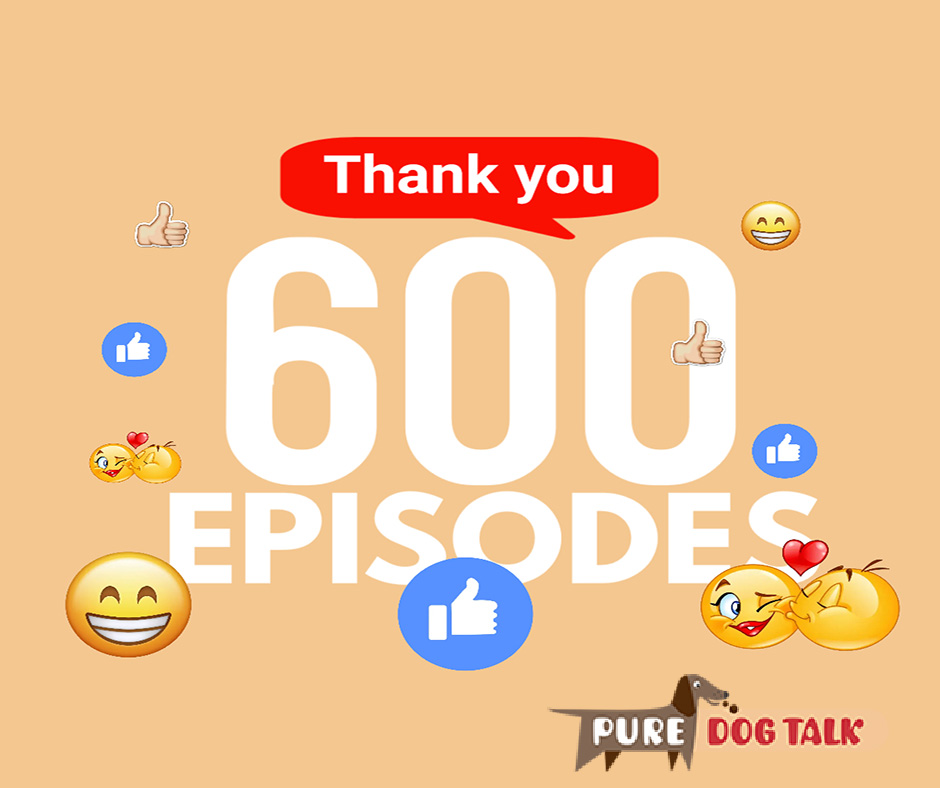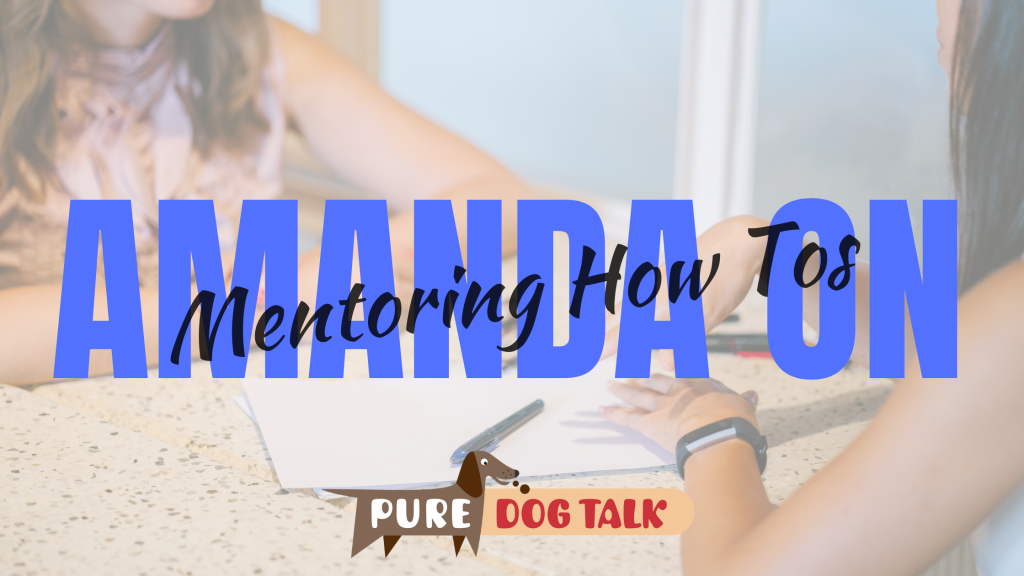600 – Mentors, Mentees and All the Love
Mentors, Mentees and All the Love
Welcome to Pure Dog Talk. I am your host Laura Reeves, and today is episode 600. Like holy podcast palooza Batman. There has been an awful lot of water under the bridge since November of 2016. If you haven’t, you should make a point to watch the Live@Five episode with Mary Albee from this month, where we talk about the creation of pure Dog talk. Everything from what to name it to her dragging me kicking and screaming into the role as host. It’s pretty epic conversation.
And for everybody who’s listening, just know that you can go to the website puredogtalk.com and the blog post will have links to a bunch of these things that I’m talking about today. I have lots of thoughts, but instead of droning on about how impactful this podcast actually is, which I know you know because I hear from you all on the daily, I want to dig into a topic that is front of mind for every single one of our listeners.
Not a day goes by in one of the, I don’t know, 9 million groups on dog book or in our own patrons group or somewhere. That there isn’t commentary about mentors and mentees and the relationships they’re in. I even touched on this in a conversation with Vicki Ronchette on her show Dog Prep School Facebook Live a few weeks back.
The fact is, for me, the most moving and powerful moments of the last seven years have been when random strangers tell me that pure dog talk and the work that we do here has served as their mentors. That pure dog talk, me as the host and all of our amazing guests – shout out to every single one of y’all – that we’re the reasons that they’re breeding dogs or showing dogs or participating in a club. And that veterinary voice episodes with Marty Greer of literally saved their dog’s life. That I, that I was their virtual mentor from afar, in a tiny, tinny voice over their smartphone.
So I wanted to dive into the concept of mentorship more in this epic moment of episode 600. This day represents a truly mind-bending amount of time and energy. Learning, growing, succeeding, failing. And I guess I’d like to use that as an avatar for really a larger conversation. Growing up this podcast, this community, this ever blossoming dialogue is in many ways analogous to the effort involved as both mentor and mentee in any relationship.
And as it turns out, the ability and willingness to share knowledge and accept the sharing of knowledge in a mentoring type relationship is not actually hardwired into the human brain. So I went searching for, you guessed it, some more insight and some more knowledge.
446 – Mentoring How Tos: How to Give and How to Receive
Mentoring How Tos: How to Give and How to Receive
Amanda Kelly, Fwaggle Toy Manchester Terriers, is back for Part 2 of Stud Dog Shopping with host Laura Reeves, discussing how to give and receive mentoring.
“Part of a mentorship relationship is being a good student,” Kelly said. “So when you have the opportunity to pick someone’s brain, I think it’s important that you take advantage of that as much as you can. Be smart in trying to gather information from many different sources that you respect. There’s no point to asking someone who breeds dogs that you don’t like what they think.
“Choose carefully what information you’re gathering, but when you do receive it, treat that information with respect. The person has taken the time to share with you their thoughts. A candid evaluation of a dog, particularly one that belongs to someone else, is a very precious thing. It is something that breeders give out, sometimes, with a lot of hesitancy because, if abused, it can lead to difficulties.
“If I don’t trust that I can have a conversation with you where I say ‘you know, I’ve watched this dog in this line for many years. I find that they don’t seem to produce particularly strong rears so I’d be careful about that’ or ‘I’d be worried about XYZ health issue that I know has come up in that line. Make sure that you ask questions about that when you inquire about that stud dog.’ That is sensitive information.
“Each of these people is going to give you a different opinion. They all have different experiences and they all have different approaches. So, your job is to listen to everything that they say and ask intelligent questions and engage in the conversation. Then take from that conversation the pieces that make sense to you.
“We often look at photos and historical information on our breed and individual dogs in our breed anachronistically. We pull out a picture from 1972 of dog XYZ and we say ‘oh he’s too stodgy or he’s not whatever it is we’ve decided that the breed has become, should become or whatever. We don’t consider what else was out there and being shown at the time and why that dog may have been remarkable in the context of the time in which it was being shown.
“So the person you’re talking to, if they saw that dog in person, they also saw all the other dogs that were being shown at the same time. They have information about the wider family because they will have seen brothers and sisters and aunts and uncles and all of those different things that are going to help you contextualize any information that you’re gathering on any dog that’s in your pedigree.”
Hear more insight by listening to the podcast episode today!


